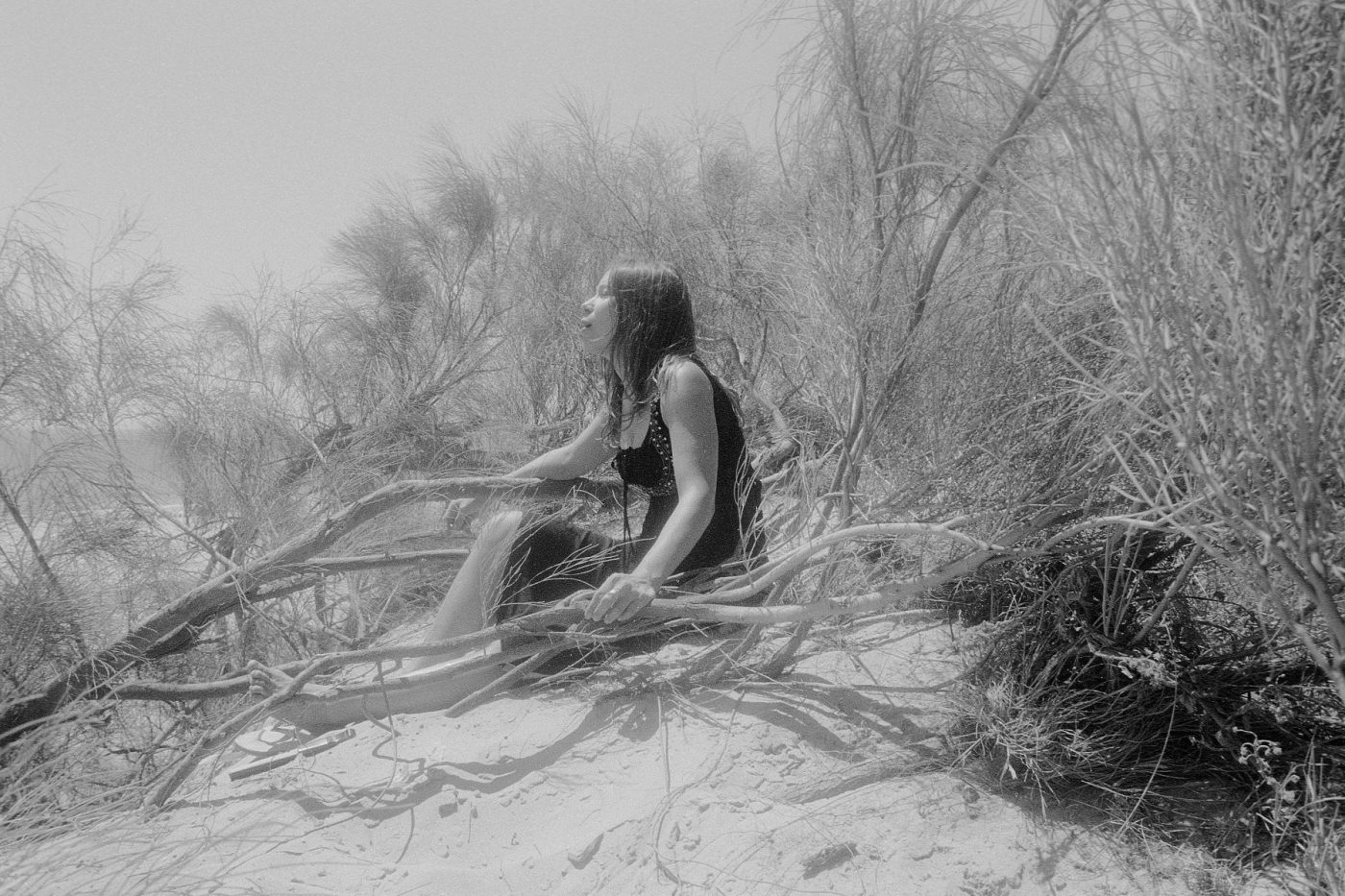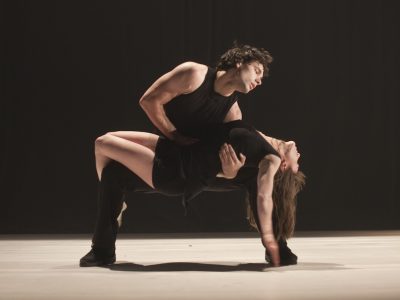- News
- Q & A: Life, Music and Mortality
Q & A: Life, Music and Mortality

Music, in all its forms, is often associated with joy and moments of celebration, laughter and life. It also plays a significant role at the end of life, and the healing process involved after enduring pain or grief.
These themes are beautifully captured and respresented in the Chan Centre’s upcoming presentation of Danse Lhasa Danse as part of the PuSh International Performing Arts Festival. Lhasa de Sela was a celebrated Montreal-based singer and songwriter who had her life tragically cut short by cancer on New Year’s Day in 2010. Choreographer Pierre-Paul Savoie of PPS Danse has created a tribute of music and dance that lovingly honours her work.
Leading up to this anticipated performance, we asked a few community experts as well as Danse Lhasa Danse artistic visionary and choreographer Pierre-Paul Savoie himself to contribute their thoughts on the relationship between life, music and mortality.
Wendy Solloway (WS) is a Music Therapist in the Palliative Care Unit at Vancouver General Hospital. She has over twenty years of music therapy experience, including palliative work at May’s Place Hospice and St. James Cottage Hospice, as well as extensive work in mental health with the South Vancouver Mental Health Team and the Downtown Eastside Rehabilition Team.
Paula Jardine (PJ) With a background in dance, theatre and writing, Paula has been artist in residence at Mountain View Cemetery in Vancouver since 2005, where she created the annual All Souls event with long time collaborator Marina Szijarto. She is also artist in residence at Royal Oak Burial Park in Victoria.
Pierre-Paul Savoie (PPS) Québécois choreographer, interpreter and stage director Pierre-Paul Savoie founded his company PPS Danse in 1989. Renowned for the striking images of his multidisciplinary works and for the pertinent questions that they raise, he has created for the stage, for film and for television, often collaborating with important institutions in theatre, music and circus.
Music is associated with the end of life in a variety of ways across many cultures. What is so meaningful about this relationship?
WS: Music’s meaning at the end of life seems to vary from individual to individual according to their particular history with music. Some people, even those who have ascribed meaning to music throughout their life, interestingly just want to have quiet at the end. But for those who look to music toward the end of life, they seem to derive meaning either from the association music has with significant events or people in their life—the place they grew up, coming of age, falling in love, marriage, children, travel, etc. or music that by virtue of the lyrics, the music, itself, or both is empowering; Certainly for those who follow a particular religious doctrine, there is music—hymns for Christians, kirtan for Sikhs, prayer chants for Buddhists, and so on that reinforce the person’s belief system and thereby ease suffering along the path toward a peaceful resolution. But even for ‘nonbelievers’, there is music that validates, that reminds, that offers perspective, that dishes out pearls of wisdom that help us cope and ultimately find peace. Faces of those who have passed out of this world on the wings of a song crowd my memory…the man who loved to sail and found peace in Christopher Cross’s words, “sailing takes me away to where I always heard it could be; just a dream and the wind to carry me and soon I will be free”…the “black sheep” who could relate to the Travelling Wilbury’s words, “it’s alright if you lived the life you please”…the young woman in her forties who found solace in the notion that her life wasn’t long but it had some wonderful moments as expressed in the song, “we sang in the sunshine, we laughed everyday, we sang in the sunshine, then I went away.”
PJ: Music in so many ways defines us culturally, and is at once quotidian and transcendent. Music can change and create atmosphere. In a way, it creates a space that we can be in that melts away any other distraction and holds us in the moment. And because music is vibration it connects us, literally, to everything.
PPS: I feel that music has the power to make its way directly to our soul; to reach and liberate the strong emotions that are created by the feeling of losing something so precious and so essential to our life; to let go of the unanswered questions related to the meaning of life. Music also help us in creating a balm for our pain and connects us with our love, our spirituality. Music trancends mortality.
In your opinion, what qualities in music best lend themselves to the healing process?
WS: The power of music works on so many levels, the whole of its qualities greater than the sum of its parts. The various components of music—melody, rhythm, timbre, tempo, etc. all combine to engage the senses in a way that can alter our perception of physical pain and anxiety. Music’s ability to touch our emotions can be a critical element in releasing pent-up feelings thus allowing us to come to terms with difficult issues. As mentioned above, the temporal association of certain music with various meaningful moments in our lives is absolutely transporting—a few strains of a particular song and it is almost as if we are there. The bells and whistles of the hospital setting, the various tubes, pills and procedures are replaced by a healthier, more vital period of life. Music can be a legacy, as parents pass on stories associated with particular music. At times, family members or friends may be having more difficulty than the patient “letting go”, and music can be the glue that unites them. It can even be a ‘presence’ that cuts through the pain of loss or gives permission to let feelings emerge. It bypasses our critical minds and goes straight for the heart where on a deeper level it connects us with the great mystery of life and death.
PJ: Familiar songs with words can help bring people together who are in a support role and singing has an added benefit to our bodies (I believe the vibrations help heal our organs!); ambient music can create space, sooth anxiety, ease pain and bring focus to the essential. Music also creates a path for our minds to follow, which is especially helpful if you are in pain or the unsettling atmosphere of a hospital.
PPS: The powerful and universal songs Lhasa wrote such as I’m Going In and Soon This Space Will Be Too Small, for me, acted as revelations. Their poetic, philosophical and spiritual content reached and touched me deeply. They were able to give me a human perspective on the inevitable step of life that is called death. The images that her words conveyed provoked me, gave me shivers and then comforted me so that I can finally live with acceptance and peace in my soul.


